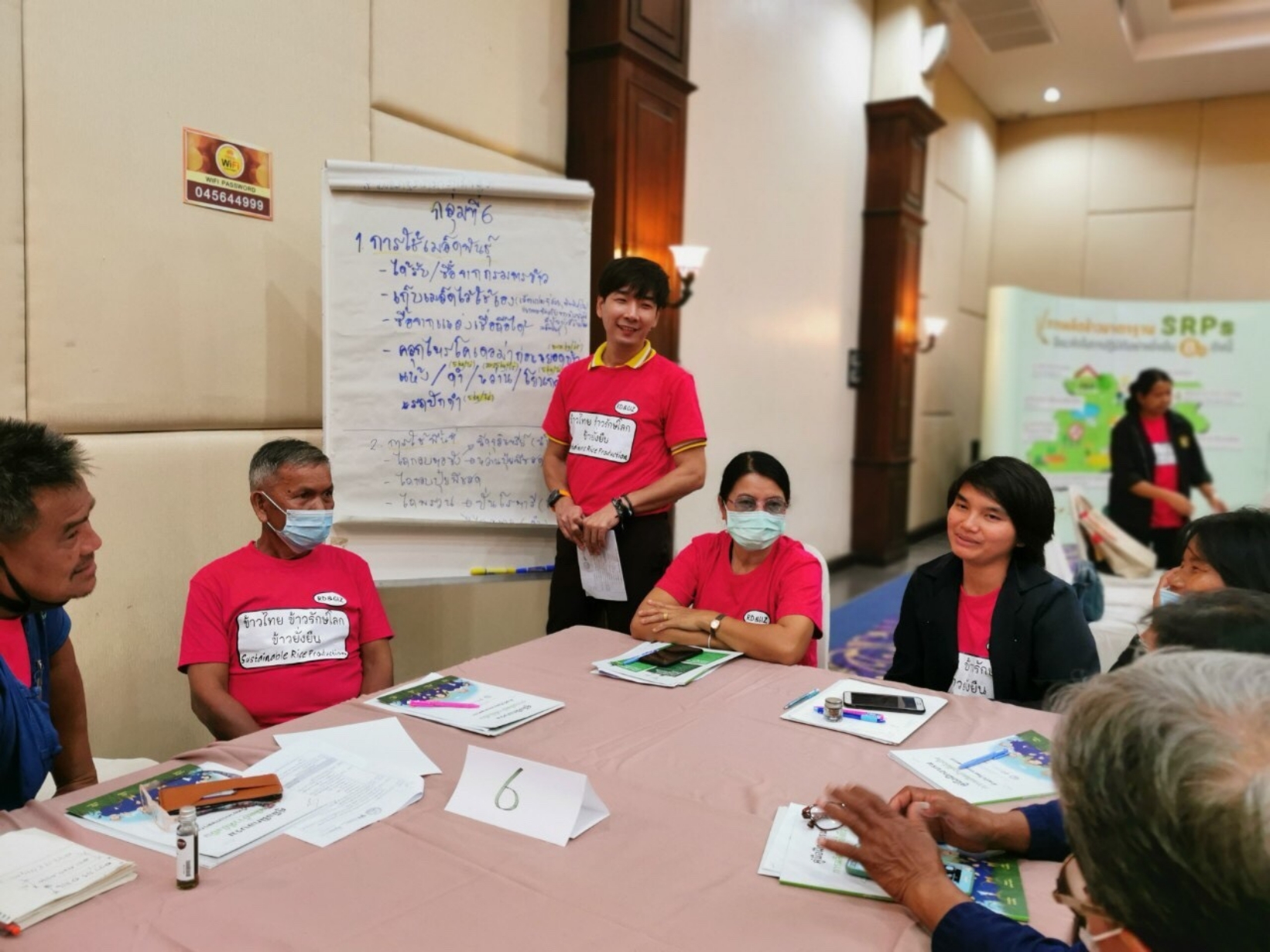Thailand has been the world’s leading rice exporter for many years. Now though, an important task for the country is to become one of the leading sustainable rice producers. To help Thailand achieve this, the Rice Department and GIZ are gearing up to promote sustainable rice production in the Central Plains and the Northeast.
The origin of sustainable rice production in Thailand can be traced back to the Better Rice Initiative Asia (BRIA I) project which was implemented in Ubon Ratchathani from 2013 to 2017 by GIZ and its partners from both the public and private sectors. With the motto “Better Rice, Better Life”, the project aimed to promote sustainable rice production and at the same time raise farmers’ income, enhance value chains and improve farmers’ capacity.
The Better Rice Initiative Asia (BRIA) continued in phase II in Ubon Ratchathani and Surin provinces, Northeastern Thailand and became the world’s first fully certified programme to produce sustainable rice with the premium Thai Hom Mali Paddy Rice certified under the Sustainable Rice Platform (SRP) Standard.
Sustainable rice production is important for Thailand’s rice sector in various ways. Demand for rice in Asia is increasing due to population growth. The Thai rice sector is facing problems of shrinking cropping areas, shortage of agricultural labour as well as an ageing population in rural areas. Moreover, there are emergent requirements and regulations on quality, safety, sustainability and traceability of production systems due to consumers’ increasing concerns about the origin and quality of rice.
In terms of the environmental aspects, the rice sector is facing uncertainty and risks from climate change as well as challenges to mitigate greenhouse gas (GHG) emission from rice cultivation. In the central plains, rice production is intensive because it is an irrigated area and that makes it possible for farmers to also grow off-season rice. However, the environmental impacts are more severe than in other regions.
The SRP Standard therefore provides potential solutions to challenges facing the rice sector in many dimensions. Farmers obtain more income and have higher rice productivity. The community benefits thanks to the improved livelihoods of farmers because of their higher incomes and higher social responsibilities. The global environmental issue, climate change, can be alleviated by sustainable rice production, due to higher capacity of farmers to adapt to climate change and mitigate Greenhouse Gas (GHG) emissions from rice farming.
Currently, the rice-related projects being further implemented with the cooperation of GIZ and the Thai Rice Department, namely Thai Rice NAMA, Market Oriented Smallholder Value Chains (MSVC) Thailand or BRIA II, Thai-German Climate Programme–Agriculture (TGCP-Agriculture) and the Sustainable Aromatic Rice Initiative (SARI) raise awareness about sustainable rice production for local farmers in six provinces (Chai Nat, Ayutthaya, Pathum Thani, Suphan Buri, Angthong and Sing Buri) in the central plains and three provinces (Ubon Ratchathani, Surin and Roi Et) in the northeast.
At the provincial and district levels, agricultural extension officers and lead farmers are trained in sustainable rice production to become “Smart Officers” and “Smart Farmers”, respectively. They are model farmers as well as trainers who transfer knowledge about sustainable rice cultivation to local farmers in the community and are the main task force for the sustainability of Thai rice production, which play important roles in ensuring the food security of the country and alleviating environmental impacts such as climate change.
Mr. Boonyarit Homchan, a smart farmer from Chai Nat province shared his experiences of implementing sustainable rice production that after adopting the SRP Standard, he gets more benefits from his rice production. The production cost is reduced and at the same time, rice productivity in his paddy fields increases.
At the end of 2020, the Rice Department and GIZ organized training sessions for trainers in sustainable rice production in Nakhon Sawan and Si Sa Ket provinces which are outside the project areas in order to out-scale the implementation of sustainable rice production. Participating extension officers and farmers in the two provinces gained an understanding of the SRP Standard on Sustainable Rice Cultivation and were confident about applying the techniques on their farms as well as transferring knowledge to others in the community. In 2021, the farmer trainings on the sustainable rice cultivation will be firstly promoted to more local farmers in the central plains and the northeast. The trained smart farmers are encouraged and supported to become farmer trainers.


